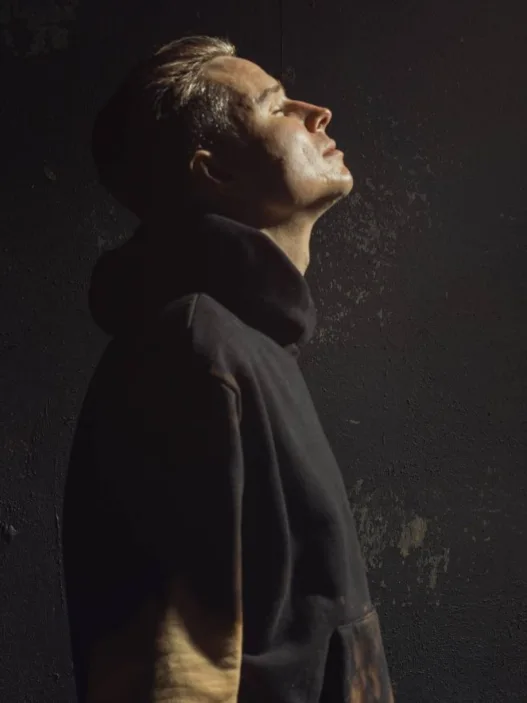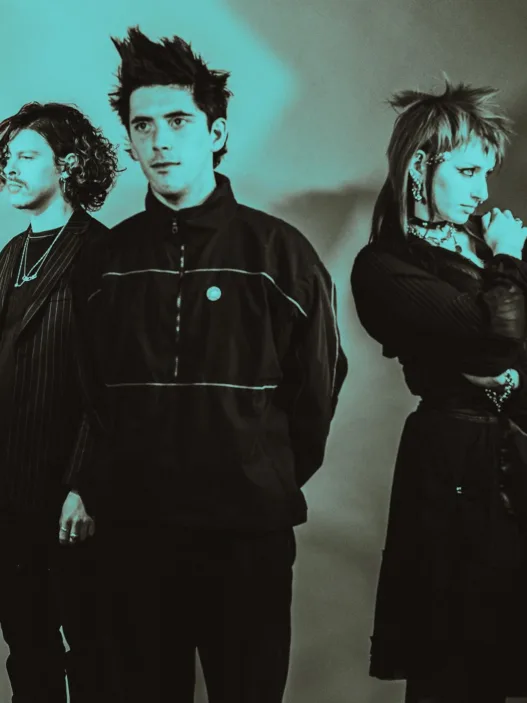I Love You, Honeybear is the equivalent of a friend who is affable, who wears their heart on their sleeve but is prone to crashlanding all of the positive emotion with large swathes of cynicism.
For Josh Tillman, playing a version of himself as Father John Misty for the second time in album format after eight solo albums, I Love You, Honeybear is an album inspired by his recent marriage and the experiences that lead to it.
Lovestruck, starry-eyed, filled with grand declarations but weighted down with inner cynicisms that temper the highs, it’s an entirely real depiction of a man, who on the surface, has passed through the marriage milestone with an experience of a magnetic strong relationship, but who also acknowledges the internal struggle of someone whose character wiring is fatalistic about their place and mankind’s route through the world.
The title track serves as a thematic introduction to this idea and pitches Tillman and his wife as insurgents of the world who will watch it burn sure, but they’ll do so together – “My love, you’re the one I want to watch the ship go down with.”
It’s an album equivalent of the absurd first scene in Monty Python’s The Meaning Of Life in which the elderly office clerks overthrow their corporate overlords and sail the high seas until they eventually sail off the edge of the world.
That feeling of teetering on the edge is what makes I Love You, Honeybear so compelling. Because real life isn’t 100% declarative love perfection. Things can be hard, times can be tough, the world isn’t forgiving, humans do unspeakably horrible things to each other but in the face of that, there are bonds and connections that make it all easier to get on with even if Tillman’s core doesn’t let him believe wholeheartedly in the power of his baggage-laden relationship.
Tillman spends some time on the album recounting his questionable behaviour as a caustic single man. ‘The Ideal Husband’ lists the things that make Tillman a horrible shit and then offers them up to Emma, as farcical proof of his suitability as a husband. He can be a dick. No-one is perfect. That’s the irony of love and of marriage, of two people melding their eccentricities, problems, issues and quirks together into one solidified happy whole.
‘The Night Josh Tillman Came To Our Apt.’ recounts the things he hates about a former lover which includes the overuse and misuse of the word “literally”, her singing affectations and her general demeanour. “And now every insufferable convo / features her patiently explaining the cosmos / of which she’s in the middle.” Tillman gets some perverse gratification as he chokes her consensually for arousal, an act that gives him a non-sexual release for his pent-up frustrations against her. ‘Strange Encounter’ tells of a girl who passed out in his home and Tillman resolving to get away from those kinds of partners. “Wanna find somebody / Not like this / Yeah, I’m a decent person / little aimless.”
Tillman’s bad faith in himself is extended to his partner. ‘Nothing Good Ever Happens at the Goddamn Thirsty Crow’ has him imagining the worst happening at home while he’s on tour and grappling with those feelings, even though he thinks of himself as a ladies man. “On the road again
For months at a time / Doesn’t take half that long for men about town to forget what’s mine / Now my genius can’t drink in silence.”
No matter how good things are, there’s always a niggling feeling that it’s all going to disappear. “How many people rise and think ‘Oh good, the stranger’s body’s still here / Our arrangement hasn’t changed?,” he sings on the ballad ‘Bored In The USA’, a song which lists all the things that make modern life shit like Tillman himself on ‘The Ideal Husband’.
The album is filled with those slips of faith. “Now, I’ve got a lifetime to consider all the ways / I’ve grown more disappointing to you, ” he sings later on the song. “I can hardly believe I’ve found you and I’m terrified by that” he sings on ‘When You’re Smiling and Astride Me’.
But there’s hope in love as well as potential hurt even if Tillman’s version is constantly buttressed by bleakness. “I haven’t hated all the same things / As somebody else / Since I remember” goes ‘Chateau Lobby #4 (in C for Two Virgins)’, suggesting shared cynicisms are as important as shared interests too.
The instrumentation on the album is positively epic, as deep as the explorations into the anxious minutiae of the self in his lyrics. Large-scale orchestral flourishes, a mariachi band, organs, psychedelic folk vistas, pianos, classic-rock guitars and whirling 70s instruments. It has a movie-score level of grandeur which is suitable for tackling the big L word.
The album’s turbulent emotional maelstrom, uncoils itself in clarity on the last track ‘I Went To The Store One Day’, a petty errand where he met his future wife. “For love to find us of all people / I never thought it’d be so simple,” he says as strings stretch out beneath him and for the first time, there is a future that doesn’t involve watching the world burn but growing old together with seven daughters on a plantation house in the South.
It’s Tillman, almost, finally, giving in to love rather than rallying against it and his own miserable mortality. But he can’t let himself give in completely as one of the last lines is actually “[Insert here: / A sentiment re: Our Golden Years]”. Once a cynic…
Father John Misty plays Whelan’s next week. It’s sold out. He’s playing Vicar Street on October 24th. Tickets €25+ are on sale Friday.. Buy the album from Bella Union.

Niall Byrne is the founder of the most-influential Irish music site Nialler9, where he has been writing about music since 2005 . He is the co-host of the Nialler9 Podcast and has written for the Irish Times, Irish Independent, Cara Magazine, Sunday Times, Totally Dublin, Red Bull and more. Niall is a DJ, founder of Lumo Club, club promoter, event curator and producer of gigs, listening parties & events in Dublin.














Brody . if you, thought Alfred `s c0mment is unbelievable, yesterday I picked up a gorgeous Citroën DS sincee geting a check for $5692 this month and a little over ten grand this past munth . it’s actualy the most comfortable work I’ve had . I began this 9-months ago and immediately started bringin in minimum $72, per-hour . look at this website ….;’;’;’;’;
========>>>>> http://HOMEWORK74.HTML